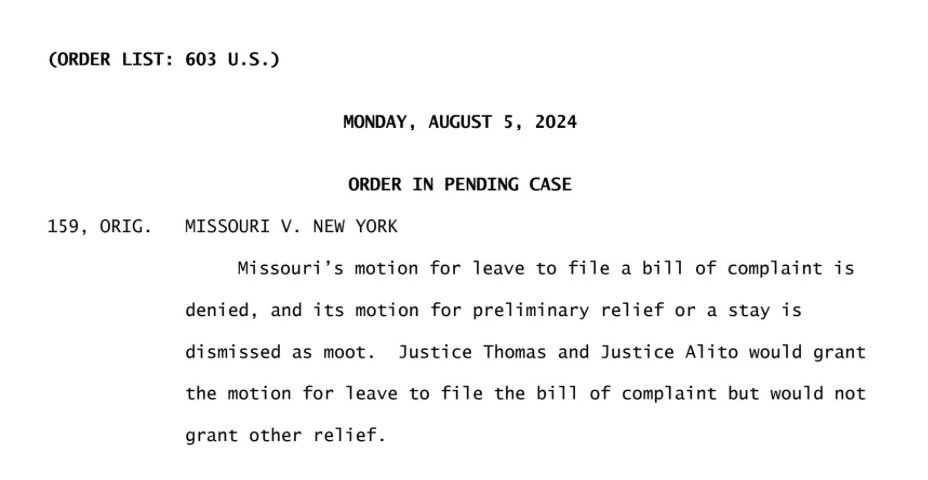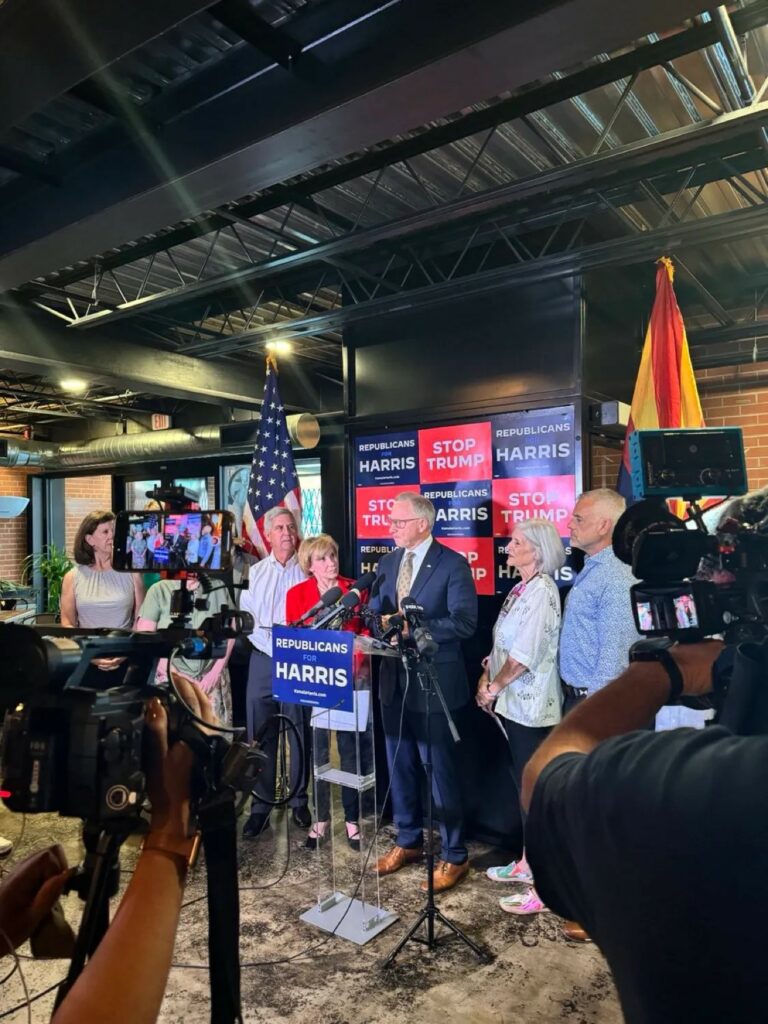By Joyce Vance Civil Discourse Tonight, the reporting is that Vice President Harris’ choice of running mate is down to Governor Josh Shapiro of Pennsylvania or Governor Tim Walz of Minnesota. Although Shapiro has a somewhat higher public profile because of his work taking on Trump and election deniers in court when he was the state’s attorney general, Walz has closed that gap in recent days. The more liberal of the two, he recently offered up his hot dish recipe and there’s a fabulous picture of him with a piglet floating around on Twitter. Also, pup cups. These are two splendidly qualified men. Walz gained experience as a soldier, a teacher, and a coach before entering politics. Shapiro is a lawyer. His first experience in
Topics:
Angry Bear considers the following as important: Hot Topics, politics, VP Candidates
This could be interesting, too:
Robert Skidelsky writes Lord Skidelsky to ask His Majesty’s Government what is their policy with regard to the Ukraine war following the new policy of the government of the United States of America.
NewDealdemocrat writes JOLTS revisions from Yesterday’s Report
Joel Eissenberg writes No Invading Allies Act
Ken Melvin writes A Developed Taste
by Joyce Vance
Tonight, the reporting is that Vice President Harris’ choice of running mate is down to Governor Josh Shapiro of Pennsylvania or Governor Tim Walz of Minnesota. Although Shapiro has a somewhat higher public profile because of his work taking on Trump and election deniers in court when he was the state’s attorney general, Walz has closed that gap in recent days. The more liberal of the two, he recently offered up his hot dish recipe and there’s a fabulous picture of him with a piglet floating around on Twitter.
Also, pup cups.
These are two splendidly qualified men. Walz gained experience as a soldier, a teacher, and a coach before entering politics. Shapiro is a lawyer. His first experience in politics was as a congressional aide. He’s won races as a Democrat in a key swing state. The reality is Democrats will be fortunate to have either one of them on the ticket. Neither wears eyeliner or has ever yelled at their kid to quit talking about Pokemon while he’s on the phone with Donald Trump. All kidding aside, it’s good to have a deep bench.
The Supreme Court is on summer vacation, but, thanks in large part to President Biden’s decision to call for Supreme Court reform, the focus on addressing the Court’s ethics debacle continues. Noting, “we’re not imperial,” Justice Elena Kagan suggested that Congress could impose binding ethics rules on the Justices. Justice Sam Alito has maintained that’s not the case. And just when you think it can’t get any worse, there was more news today about Clarence Thomas’ luxurious travels on conservative billionaire Harlan Crow’s private jet: the Senate Judiciary Committee learned that Thomas flew with Crow from Hawaii to New Zealand in 2010. We are only finding out about it now, 14 years later, because Thomas never reported it. He is required to do so on his disclosure forms. Perhaps, like Alito, he thinks this kind of travel doesn’t raise a conflict of interest if the seat would have “otherwise been vacant” had he not taken the ride.
Despite Thomas and Alito’s clear conflicts of interest when it comes to anything to do with Donald Trump, in the absence of mandatory ethics rules, the two continue to sit on cases on which they do not belong. Today, the Court ruled on an emergency petition pending in a case where Missouri’s Republican attorney general wanted to prevent the New York state prosecution of Trump. Missouri attorney general Andrew Bailey also wanted an injunction to prevent Trump from being sentenced next month.
No surprises here; the Court told Bailey no. Even in a world where the Supreme Court provides former presidents with broad immunity for official acts, this one was just a bridge too far. If they’d allowed this, California might try to keep Texas from doing its next crazy thing and so on. While the nine Justices unanimously rejected Bailey’s request to block sentencing, Justices Thomas and Alito would have let him file his complaint. The outrage here isn’t the position they took (I’ll explain in a minute), it’s that they participated in the case at all. They should have recused, as they should have in the 14th Amendment case and the immunity case. It’s clear they don’t care, and that the only option left for true institutionalists who want to preserve our system of checks and balances is to extend mandatory ethics rules to the Court.
Here’s our bit of legal nerdiness for the evening: the explanation of why Justices Thomas and Alito would have permitted Missouri to file its complaint. Missouri’s attorney general brought the case, invoking the Supreme Court’s “original jurisdiction.” Most of the time, the Court hears appeals from lower courts. But in very limited situations set out in the Constitution, parties have the ability to go directly to the Supreme Court and ask it to decide their dispute. One of those situations involves when a state is a party to a case. The Judiciary Act of 1789 went further than the Constitution, providing that the Supreme Court is the exclusive court for a lawsuit between two or more states. So, for instance, disputes between states over water rights have been taken up directly by the Supreme Court. But in this case, one state wanted to prevent another state’s criminal justice system from enforcing its own laws. That’s a farcical interpretation of the law, and its likely the Justices simply didn’t believe Missouri’s AG had standing to challenge anything a DA in New York City did. After the 2020 election, Texas’ AG tried to challenge vote counts in Pennsylvania, Georgia, Wisconsin, and Michigan, and the Supreme Court waved them off for lack of standing.
But Justices Thomas and Alito have consistently held that once parties invoke original jurisdiction, they should be permitted to file their complaint, even if they aren’t entitled to any relief. In the order rejecting the election case, Alito, joined by Thomas, wrote, “In my view, we do not have discretion to deny the filing of a bill of complaint in a case that falls within our original jurisdiction. I would therefore grant the motion to file the bill of complaint but would not grant other relief, and I express no view on any other issue.” They explained at length why they believe that is the correct approach in a 2021 dissent in Texas v. California for anyone who wants to dig deeper. You may agree with them or not, but the reason today’s ruling is troubling is not that they did something crazy in another Trump case; it’s that they participated in the case at all.
Trump lawyer Jenna Ellis was in the news again today. Ellis, who has already pled guilty and tearfully apologized for her role in pushing the Big Lie following the 2020 election in Georgia, has a plea deal in Arizona. It’s what prosecutors call a sweetheart deal. In exchange for her full cooperation in both state and federal proceedings (this could just be boilerplate language though; we don’t know if anything specific is contemplated in the agreement), all of the charges against her will be dismissed. If Ellis lies or withholds anything material, her deal is off, and the AG can reinstate the old charges and file new, additional ones.
In April, Arizona AG Kris Mayes announced that a grand jury had indicted Trump’s former chief of staff Mark Meadows, Rudy Giuliani and 16 others including Ellis, Mike Roman, Christina Bobb, Boris Epshteyn, and John Eastman, as well as 11 Republicans who submitted a document to Congress falsely declaring that Trump won Arizona in 2020, on a variety of charges.
A defendant who enters into a cooperation deal like this makes themself very vulnerable. The decision about whether a defendant has failed to uphold their end of the bargain is left to the “sole discretion” of prosecutors. If they believe Ellis has double-crossed them, she will be in serious trouble, facing not just the original charges, but anything else prosecutors have on her. It’s this feature of the deal that is often helpful in convincing a jury to believe a cooperator’s testimony—the witness’ only path forward is telling the truth. If they lie to a jury and prosecutors catch them—and they usually do because the defendant knows enough about their former coconspirator’s conduct to out them—they lose their deal and likely end up in prison for longer than they would have originally.
In other words, this deal, unlike the ones in Georgia that did not call for cooperation, has the potential to be a big deal. Donald Trump is not a defendant in the Arizona case at present.
Tonight, some Arizona Republicans seem to have had enough. Delaney Corcoran, who runs comms for Kamala Harris in Arizona, tweeted that a group of Arizona Republicans were endorsing Harris and delivering a “slam” on Trump for attacking democracy. She said they will reach out and encourage other Republicans to reject MAGA in the November election.
Americans still want democracy. It’s a real moment for people to remember that country has to matter more than a political party, especially when that party has abandoned any principles and become the captive of a self-aggrandizing huckster. We are getting there.




